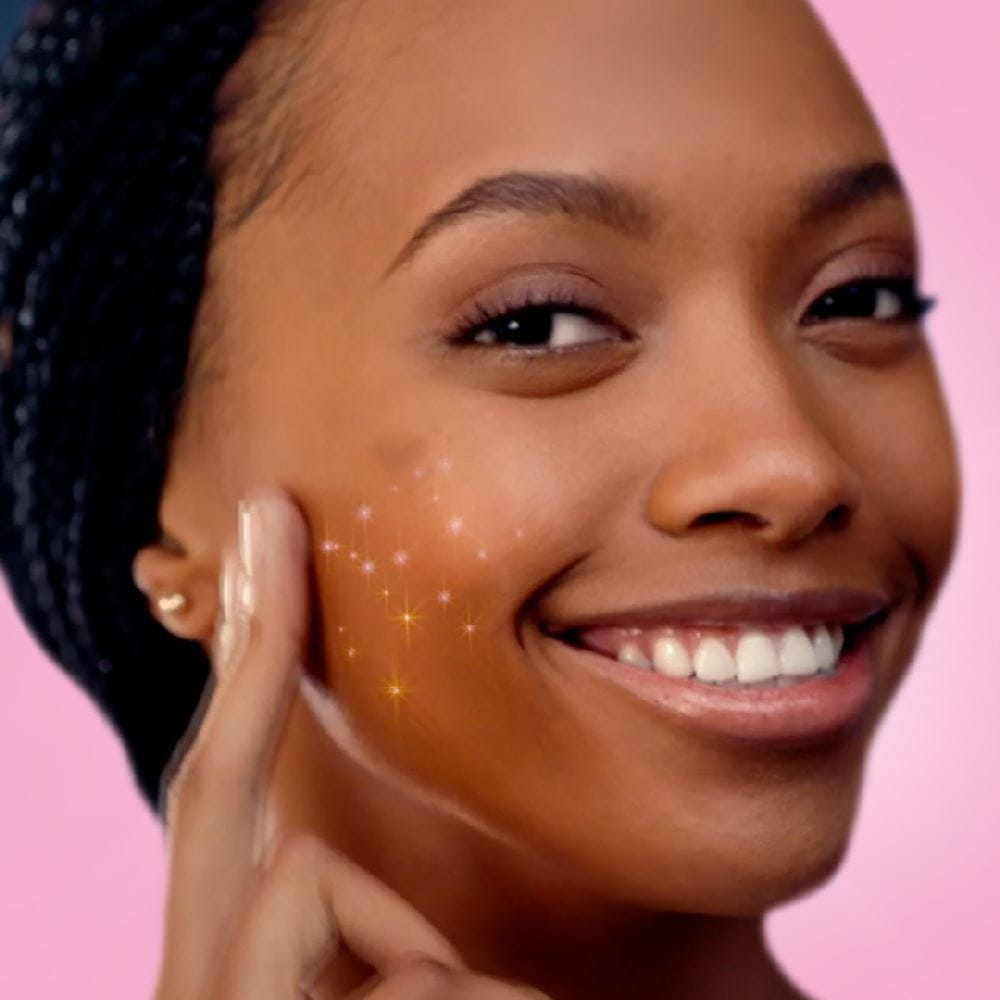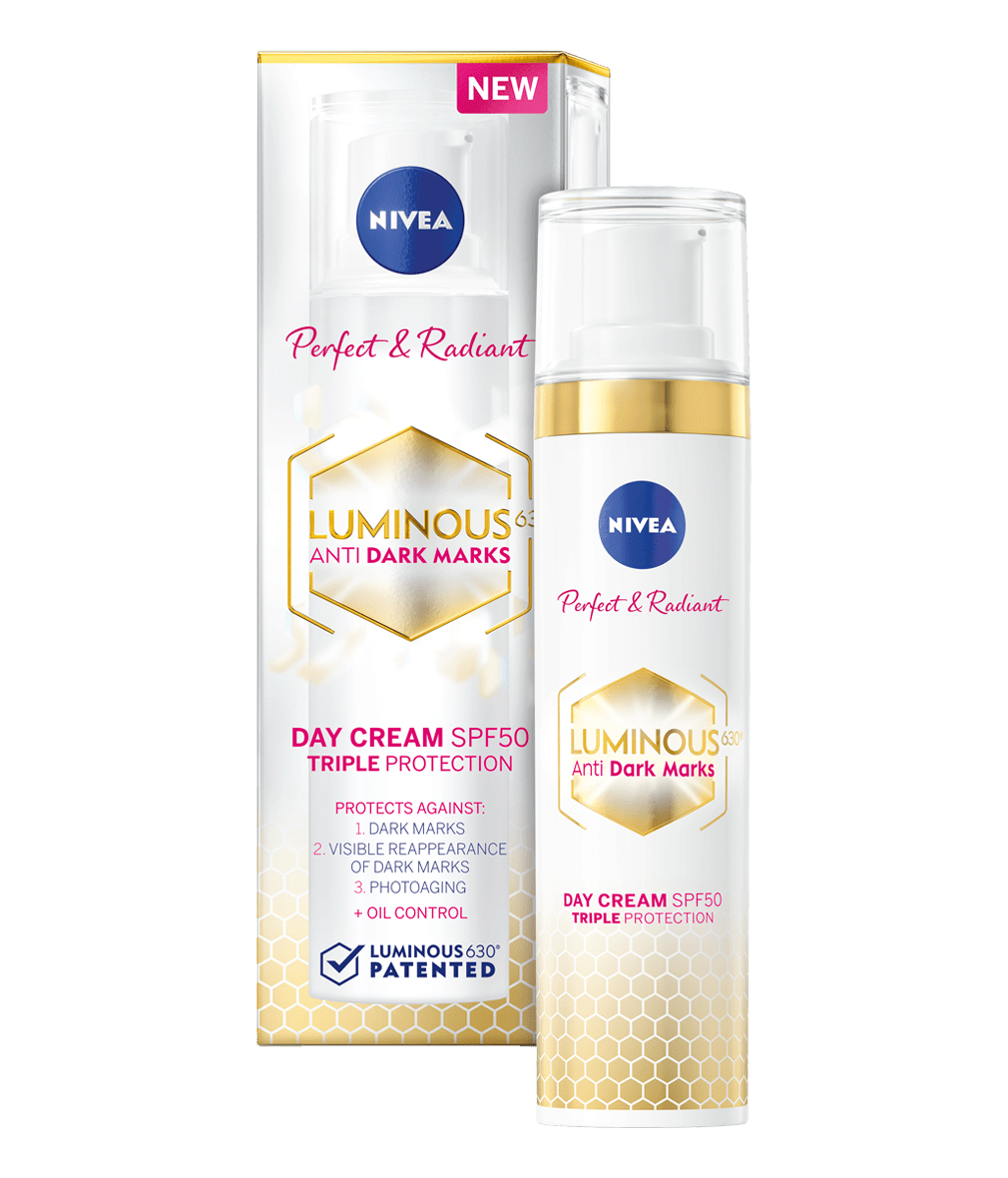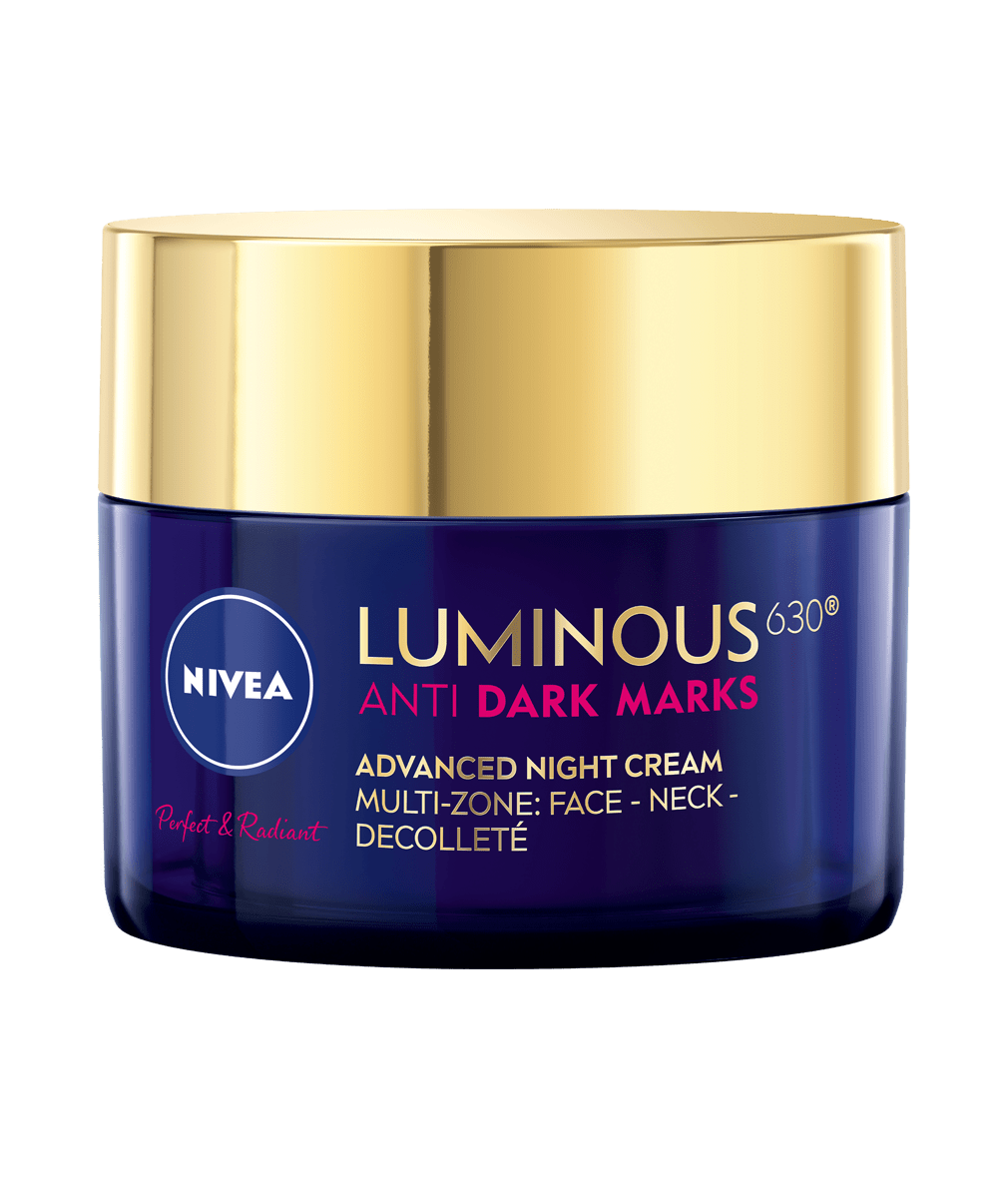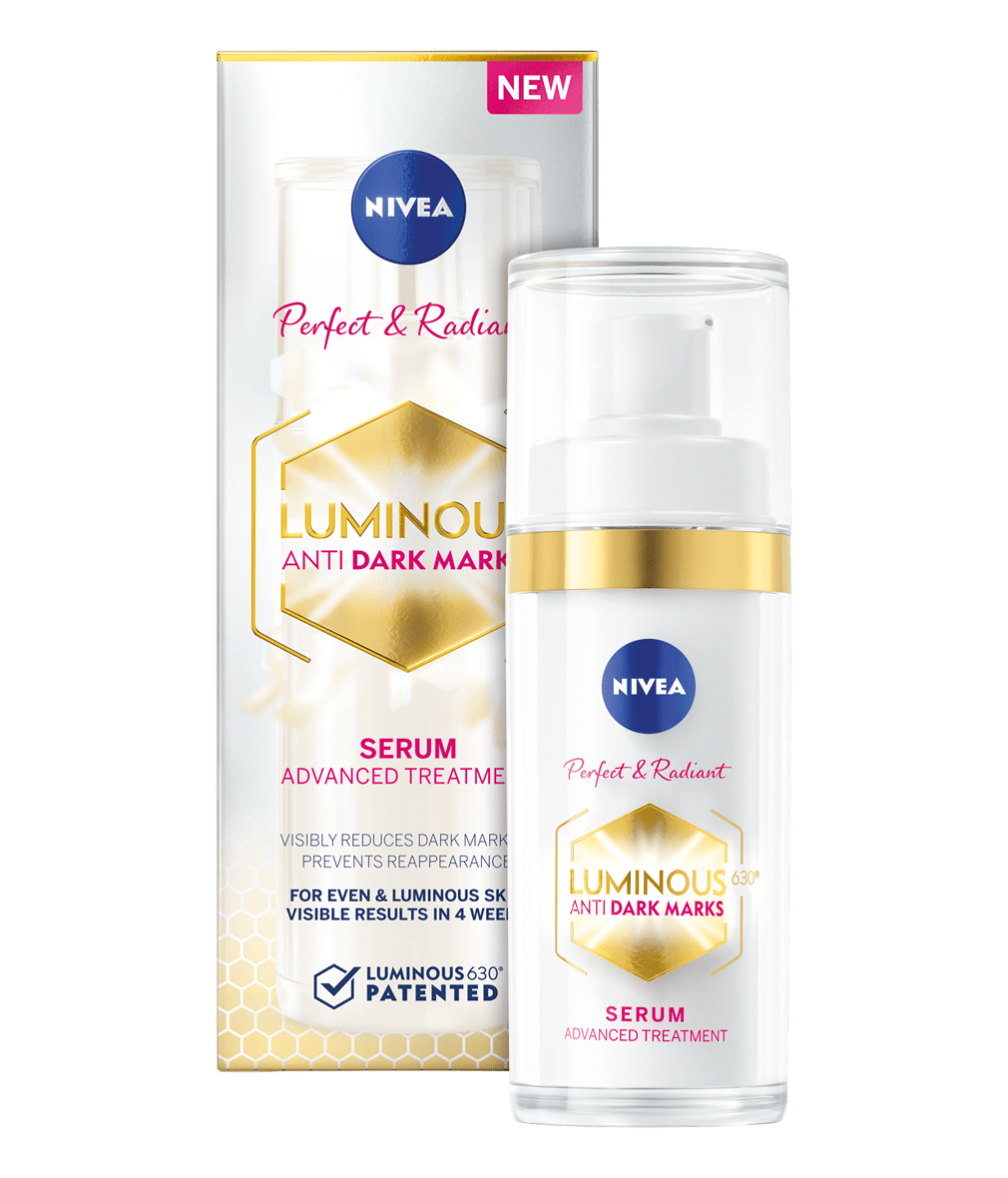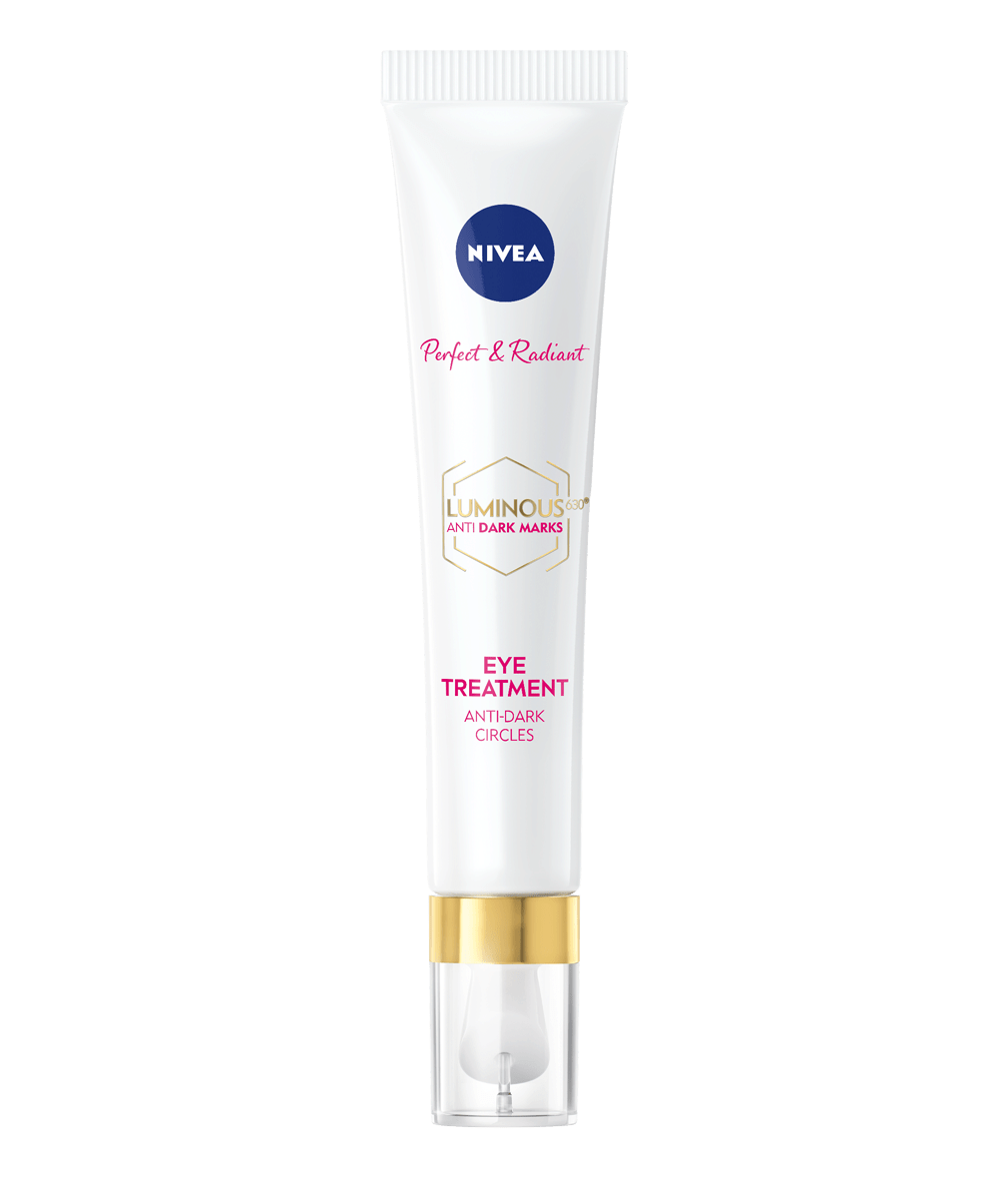
WHAT IS PREGNANCY MASK?
Everything you need to know about melasma during pregnancy
HOW CAN I PREVENT MELASMA?
1. Always use sunscreen with a high SPF. And use it all day, every day. Stay out of the sun during the midday hours. Our skin is very sensitive to UV radiation, which can also cause hyperpigmentation in our skin. Because UV radiation is strongest during the midday hours, it’s best to avoid the sun altogether then. To prevent and treat pregnancy pigmentation, try NIVEA Perfect & Radiant LUMINOUS630® Day Cream. It acts on existing dark marks to visibly reduce dark marks and spots, while the SPF50 helps to reduce the appearance of new dark marks.
2. Drink lots of water, every day. And, even better: squeeze some lemon or orange in it. The water will help you get rid of toxins in your body.
3. It is possible that your hyperpigmentation is not caused by the pregnancy. It can have other, even more common, reasons. Hyperpigmentation comes in many different forms - read more about why dark spots on the skin appear and how you can prevent them.
NOT JUST DURING PREGNANCY
Hyperpigmentation can be caused by many different things. A change of hormones during pregnancy is only one of them.
After acne, you can be left behind with post acne marks and discolouration of your skin. When the inflammation has healed, sometimes we are left with dark patches of skin. But how can we get rid of dark marks? And which is the best way to treat acne skin? Find out here.
During menopause, the oestrogen levels in our body changes drastically. This, in turn, might lead to a discolouration of the skin, so-called menopause acne.
Find out how to treat your dark spots with NIVEA Perfect & Radiant LUMINOUS630®.
